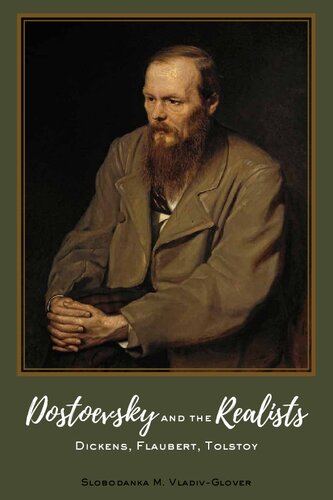

Most ebook files are in PDF format, so you can easily read them using various software such as Foxit Reader or directly on the Google Chrome browser.
Some ebook files are released by publishers in other formats such as .awz, .mobi, .epub, .fb2, etc. You may need to install specific software to read these formats on mobile/PC, such as Calibre.
Please read the tutorial at this link: https://ebookbell.com/faq
We offer FREE conversion to the popular formats you request; however, this may take some time. Therefore, right after payment, please email us, and we will try to provide the service as quickly as possible.
For some exceptional file formats or broken links (if any), please refrain from opening any disputes. Instead, email us first, and we will try to assist within a maximum of 6 hours.
EbookBell Team

4.7
66 reviewsDostoevsky and the Realists: Dickens, Flaubert, Tolstoy offers a radical redefinition of Realism as a historical phenomenon, grounded in the literary manifestoes of the 1840s in three national literary canons (English, French and Russian) which issue a call to writers to record the manners and mores of their societies for posterity and thus to become "local historians." The sketch of manners becomes the instituting genre of Realism but is transformed in the major novels of the Realists into history as genealogy and into a phenomenology of modern subjectivity. Dickens, Flaubert and Tolstoy are brought into relation with Dostoevsky via a shared poetics as well as through a deconstructive and/or psychoanalytic analysis of their respective novels, which are interpreted in the context of various doctrines of Beauty, including Dostoevsky’s own artistic credo of 1860. In this broad context of European aesthetics and the European literary canon, Dostoevsky’s own view of history is illuminated in a new perspective, in which his concept of the "soil" is stripped of its conservative mask behind which emerges a (post-exile) Dostoevsky with socialist, pan-European views. The portrait of Dostoevsky which thus emerges from the present study is that of a European writer with a radically modern aesthetics and with a progressivist political orientation which is in consonance with his pre-exile affiliation with utopian socialism.